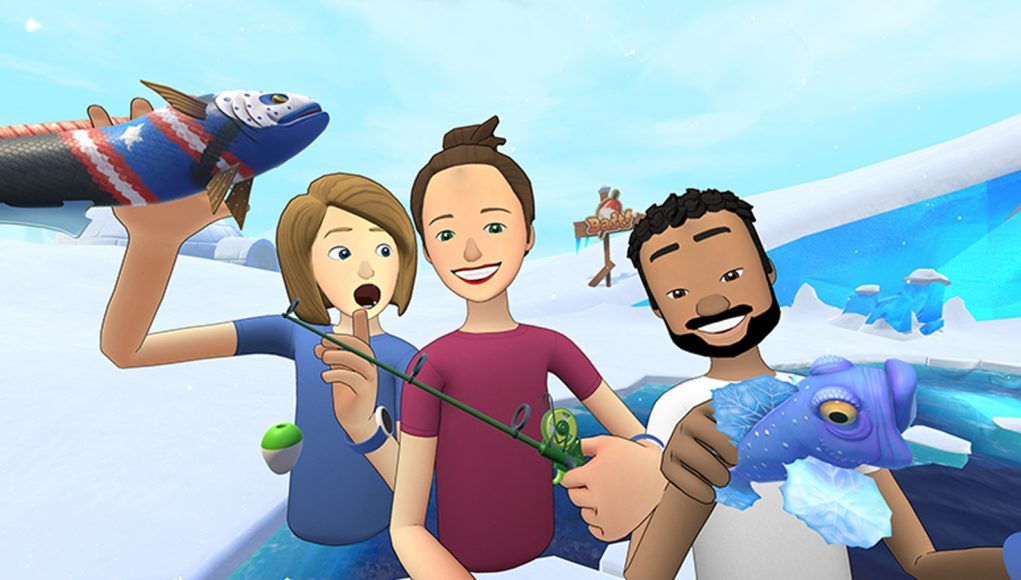Facebook Spaces, the company’s social VR platform available on Oculus Rift, has updated to include a new mini-game that aims to pave the way for more yet to come. Called Bait! Arctic Open, the game lets you ice fish while you shoot the breeze with your VR buddies.
Announced during the Oculus Connect developer conference this year alongside the news that Home will soon get a full social overhaul, Facebook has finally released their first game for Spaces, a Rift-native iteration of Resolution Games’ Gear VR title Bait! (2016). Called “an early experiment” by the company, the game may be a simple fishing game, but Facebook considers it a milestone in a much larger effort to not only get more people using the social VR space, but to keep them there.
Facebook Spaces Head of Product Mike Booth says the main reason the company used a game like Bait! was “because it’s a 3-dimensional, real-time simulation that’s social—so it could be used as a prototype to start building our third-party developer tools.” Boot, who’s overseen the project since the beginning says putting the game into Spaces forced them “to do the kinds of things we’ll need to do in a 3D environment for developers, rather than a 2D environment.”
As a game that admitted allows you to be socially active but not take “100% of your mental bandwidth,” as Resolution Games CEO Tommy Palm puts it, it’s an interesting first entry that plays to the strengths of the platform as it is currently. Facebook Spaces still doesn’t feature any sort of artificial locomotion, making an ice fishing game, where you’re necessarily tied to a single location, a natural starting point. Being fairly simple doesn’t hurt either, making it an easy thing to pick up and put down.
Facebook’s social VR team has also been experimenting heavily with traditional table games like cards and dice too, and while those things will likely come at some point in the future, the company seems more focused on building out a ‘target platform’ and creating developer tools so more third-party developers can come in with their own ideas.
“This is only the beginning,” says Booth. “Experiments like this are helping us learn what’s possible to build in Spaces, what works, what doesn’t, and what tools will empower developers to bring great ideas to life. Eventually, we want even more developers to build with us. We’ll share more on our plans next year, so stay tuned!”
Check out the entire interview here.







